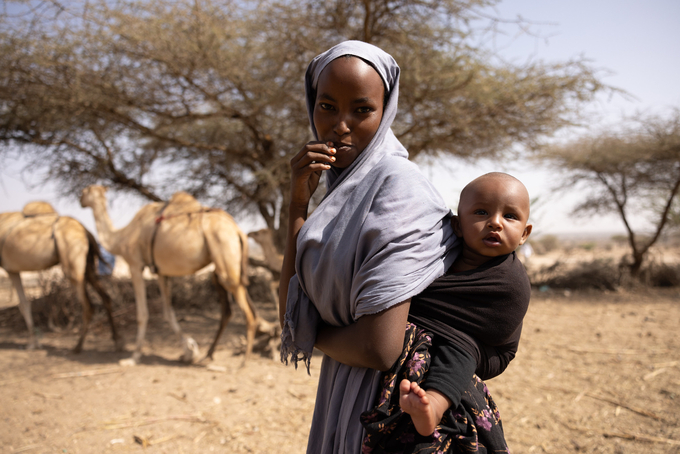May 22, 2025 | 08:50 GMT +7
May 22, 2025 | 08:50 GMT +7
Hotline: 0913.378.918
May 22, 2025 | 08:50 GMT +7
Hotline: 0913.378.918

PLACE will help build resilience among pastoralists in the face of a rapidly changing climate.
The Food and Agriculture Organization of the United Nations (FAO) and the European Union (EU) have signed a four-year 47 million euro programme designed to strengthen the resilience of pastoralists in Eastern Africa.
The initiative, named “Pastoralism and Livestock Adaptation to Climate Change in Eastern Africa Programme (PLACE),” is designed to address the challenges in developing sustainable, climate-resilient pastoral systems across the environmental, economic and social dimensions of pastoralism in the face of a rapidly changing climate.
“The EU has been a longstanding partner in Eastern Africa, especially in enhancing the resilience of pastoral livelihoods. We welcome this timely programme as the region's rangelands face increased incidence and severity of climate-related shocks and a gradual degradation of the natural resource base, which is further threatening the pastoral way of life,” said Rein Paulsen, FAO’s Director of the office of Emergencies and Resilience.
Livestock is a lifeline for over 250 million people in the region and is deeply embedded in the communities' social, cultural, and spiritual fabric. Pastoralists undertake livestock keeping not only as a commercial enterprise but also as a social investment. They have provided, over centuries, ecosystem services that are difficult to convert into commercial values, with these intangible values comprising many interrelated cultural and environmental benefits.
However, pastoralism is at a critical juncture. Societal shifts in the region mean fewer young people are interested in what is traditionally considered a pastoral lifestyle. In addition, severe and frequent droughts have devastated rangelands, resulting in the loss of over 13 million livestock between late 2020 and early 2024.
PLACE’s holistic approach aims to foster an environment that promotes comprehensive and innovative solutions to enhance resilience, improve food security, and establish sustainable livelihoods. It will be implemented across four cross-border cluster areas—the Bahr el-Arab, Karamoja, Mandera, and Mara-Serengeti Clusters—spanning Ethiopia, Kenya, Somalia, South Sudan, the Sudan, Tanzania, and Uganda.
PLACE focuses on environmental sustainability, economic development, and social inclusion. Its implementation is expected to directly benefit more than 100,000 households.
Efforts will focus on several key areas, including strengthening land tenure systems, reducing greenhouse gas emissions, preserving biodiversity and natural resources, building strong local economies within the livestock sector, fostering sustainable economic growth, reducing resource-based conflicts and creating jobs. The programme’s initiatives will aim to improve living conditions, ensure fairness and inclusivity, and amplify the voices and participation of pastoralists, with particular attention to gender and youth inclusion.
(FAO)

(VAN) Attempts to bring down the price of the Japanese staple have had little effect amid a cost-of-living crisis.

(VAN) Fourth most important food crop in peril as Latin America and Caribbean suffer from slow-onset climate disaster.

(VAN) Shifting market dynamics and the noise around new legislation has propelled Trouw Nutrition’s research around early life nutrition in poultry. Today, it continues to be a key area of research.

(VAN) India is concerned about its food security and the livelihoods of its farmers if more US food imports are allowed.

(VAN) FAO's Director-General emphasises the need to work together to transform agrifood systems.

(VAN) Europe is facing its worst outbreak of foot-and-mouth since the start of the century.

(VAN) The central authorities, in early April, released a 10-year plan for rural vitalization.